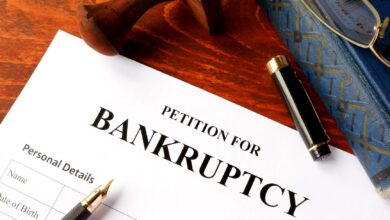Gathering Evidence for a Personal Injury Claim

Many people experience unintentional injuries yearly, but only 3% of these cases end with a trial verdict. Personal injury includes any physical or psychological harm caused to a person by another party. You can file a personal injury claim in case of body injuries due to motor vehicle accidents, medical malpractice, or product defects. A personal injury claim can also arise from defamation, false detention, or infliction of emotional distress. If you suffer harm from an injury caused by another person or company, you can file a legal dispute to receive compensation. You will need to provide enough evidence regarding your claim to receive a fair settlement. Here are some tips to help you gather valid proof.
Read More: How Much Should a Personal Injury Attorney Charge?
Have a Personal Narrative
Write down the accident events, including the time, where you were going, and what you did before and after the incident. If you can’t write, record audio of what you saw, heard, or felt. Describe the injuries you sustained and how they affected your quality of life. Record the events following the incident, like phone calls made to your insurance company or employer. Note down the kind of help you received during this period. This includes information like who you assigned or hired to do your household chores or take you to and from the hospital for treatment.
Document any other losses due to the accident, like missing work or special events. Keep notes of how you feel after the accident, whether you experience more pain, numbness, anxiety, or insomnia. This information will help you recall all details concerning the accident later on and give your attorney a clear view of the incident’s circumstances.
Take Photographs and Videos
If your injury isn’t life-threatening, use your phone to record the details of the accident scene. Time is of utmost essence when taking photographic evidence since it can easily be blown away by the wind, or the injury may also heal. Take pictures of the weather conditions at the time the accident happened. The image file should also indicate the time and day of the accident. Take several photos of the accident scene from different angles to help determine the severity of the accident.
Try to capture debris, skid marks, and any hazards at the accident scene. Also, capture any damage on the nearby structures and take pictures of your injuries. You will also need to take photos of how the injury progresses over time. Alternatively, you can obtain video evidence from security footage. Photos and videos help establish liability for the accident and determine the severity of the impact.
Get Witness Statements
If the involved parties present a conflicting version of the events, a witness can help give an unbiased description of the incident. Look for people who saw the accident, and ask them to write details of what they observed during the incident or record an audio statement. A witness description that confirms your claims can strengthen your case. Ask for their name and phone number in case they need to appear in court.
Read More: What To Look For When Purchasing An Auto-insurance For Your Vehicle?
Collect Physical Evidence
Any physical thing you can see at the accident scene will help prove who is at fault and what caused the accident. Pick up items like broken stairs that could have caused a slip, torn clothing worn at the time of the accident, a car dent, or overhanging branches that hinders visibility. Collect and preserve physical evidence as soon as possible before it is destroyed, repaired, or modified. Add the receipt to your evidence collection if you purchased crutches or a wheelchair to help with movement after the accident.
Keep Medical Records
After the injury, seek treatment immediately. Keep a record of the medical bills, diagnostic reports, discharge instructions, receipts, prescriptions, and lab reports to help establish the nature of the injury sustained. This also includes the state of your well-being and long-term rehabilitation needs. Get a full health report from your doctor comparing your health status before and after the injury. This will help you get the compensation you deserve.
Get a Police Report
In case of an accident or injury, inform the police immediately. Police reports are crucial evidence pieces that can help build your case. The police report is usually a factual, unbiased, clear, and accurate description of what transpired during the incident. If the police report supports your claims, it increases the chances of a successful outcome.
Get Help From a Personal Injury Lawyer
The best way to maximize your chances of winning a personal injury lawsuit is by gathering as much evidence as possible. If you experience injury due to another person’s ill acts or negligence, get help from agrusslawfirm.com. We will match you with the best personal injury lawyer who will help you compile comprehensive proof to get a fair compensation.












3 Comments